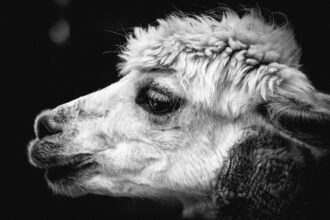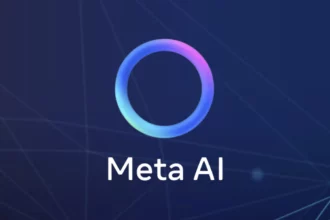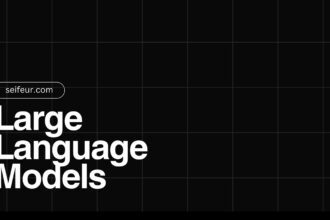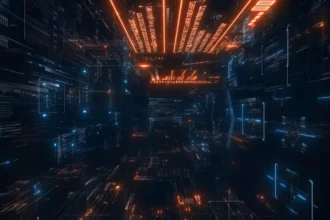Have you ever wondered whether those stunning images generated by AI, like Meta’s tools, are actually subject to copyright? If so, you’re not alone! With the rapid rise of AI in creative fields, the question of copyright implications has become more critical than ever. In fact, the U.S. Copyright Office recently made it clear that AI-generated works may not hold the same protections. Let’s dive into these intricate issues and uncover the latest insights on copyright law as it pertains to AI-generated content!
Table of Contents
ToggleUnderstanding Copyright and AI Images
Alright, folks, let’s start from the beginning: what’s copyright, and why does it matter? Copyright is basically a legal shield for original works, meaning it protects you if you create something unique and someone else tries to steal it. Sounds pretty straightforward, right? But here’s the kicker—originality is the key. If it’s not original, then copyright may not apply.
So, what’s originality? Simply put, it’s about being the first to create something new and creative. Kind of like that time I attempted to bake a cake without a recipe—let’s just say the result wasn’t exactly a Michelin-starred dish! But in art, things get a bit trickier with AI. You see, if an AI tool creates an image, does that image count as original? That’s where the conversation swirls. It’s this blurry line that has a lot of creatives scratching their heads.
One thing we can’t ignore is human involvement. How much creativity from a human is needed to make something copyrightable? That’s the million-dollar question! From my experience, many people think that just hitting a button on an AI tool gives them rights over whatever pops out, but that’s not necessarily true. It’s a gray area that is still really being explored in legal circles, so don’t just assume you’re covered. Getting a good understanding of where you stand can save you from potential headaches.
Can Meta AI Images Be Copyrighted?
Here’s the juicy part—the current legal stance. According to the U.S. Copyright Office, AI-generated images often don’t qualify for copyright protection unless there are clear contributions of human creativity involved. For example, if you input a prompt into Meta’s AI system and then take that raw output and creatively alter it using someone like GIMP or Photoshop, it might be eligible. But boy, are the rules complicated!
Let’s get real. There have been situations where works generated solely by AI lack that human touch and thus cannot be copyrighted. Think about it: if an AI churns out a piece of art without any creative direction from a human, what rights do you think you actually have over that image? It’s like trying to claim ownership over a wildflower growing in the field; nature made it, not you!
For those of you interested in specifics, consider recent developments. There have been cases going around social media where some artists felt robbed after seeing their works re-imagined by AI without their permission. Such situations brought to light the importance of protecting human-created art. Some legal precedents are forming, and the landscape is shifting—so keep those ears perked up, especially for news related to AI-generated content!
Recent Legal Updates on AI and Copyright
So let’s chat about some recent legal updates because, honestly, this stuff changes fast! There have been cases popping up that could make or break our understanding of AI and copyright. One particularly noteworthy case involved an artist grappling against a tech company claiming they owned AI-generated art based on their original works. **Spoiler alert**: it didn’t end well for the artist, raising alarm bells for creators everywhere.
The implications are huge! If courts continue to side with tech companies using AI to generate art, many artists could find their works dwindling in terms of legal protections. The key takeaway here? If you’re using AI for your art, ensure you’re actively engaging in the creative process to fortify your claim over the final product.
And you can’t ignore the whispers of changing regulations! Laws aren’t set in stone, and technology is evolving faster than ever. So, stay vigilant about updates in copyright regulation; if you don’t, you might just end up on the wrong side of a legal battle you never saw coming. Been there; it’s not fun.
Using AI Images Responsibly
Now, let’s talk about responsibility. Using AI-generated images can be tempting and fun, but it’s your duty as a creator to ensure you use them wisely. A good rule of thumb is to ask yourself if you’re properly utilizing these tools or if you’re just slapping them onto your projects without effort. Try putting in some elbow grease! Maybe tweak that image, add your unique style, or just reimagine it, so your touch is evident.
Let’s also talk about commercial vs. non-commercial use. Non-commercial means you’re just doing it for yourself or a small local charity. But once you start selling or profiting off it, you’ve moved into commercial territory, which has different guidelines. Back in the day, I made the mistake of trying to monetize some AI art thinking it was all mine, only to learn I was treading on shaky ground!
I can’t stress enough how important attribution is. If you’re using AI-generated images, best practices dictate that you give credit where it’s due! Yes, the AI generated it, but acknowledging its source not only maintains integrity but also builds trust with your audience. It’s simply good karma!
The Future of AI Art and Copyright
So, what does the future hold when it comes to AI art and copyright? Honestly, it’s like watching a sci-fi movie play out! New trends are popping up, and many creators are looking to embrace AI as a collaborative partner rather than just a tool. It’s gonna be a balancing act between fostering creativity and ensuring everyone’s intellectual property is protected.
Some speculate that we’ll see more defined regulations surrounding AI art in the near future. Imagine a world where AI art has its own copyright category—wouldn’t that be wild? Frankly, without proper frameworks, things could get messy. We’re already seeing debates about what constitutes originality in this new age of digital creativity.
So, keep reading, join workshops, connect with fellow creators, and stay updated on the evolving legal landscape. The more informed you are, the better you can navigate the artistic waters of today. Sounds cheesy, but your future self will thank you for it!
Conclusion
In conclusion, while the world of AI-generated art is captivating and full of potential, understanding the copyright implications is crucial for creators and users alike. With current laws indicating that AI images may not be copyrighted, it’s essential to stay informed and use these tools responsibly! Ready to safeguard your creative works? Dive deeper into the world of AI and copyright laws today!





